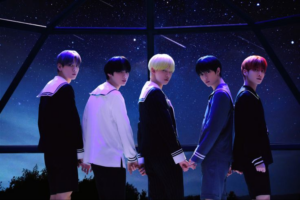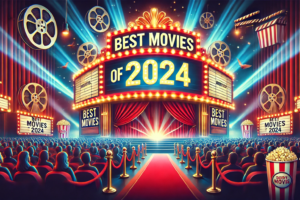Inside the Legal Battle: Michael Crichton’s Estate vs. Warner Bros Over the ER Reboot
The world of entertainment is no stranger to legal disputes, but when a lawsuit involves one of the most iconic television shows of all time, it grabs the public’s attention. This is exactly what happened when the estate of Michael Crichton, the legendary author and creator of ER, filed a lawsuit against Warner Bros. The dispute centers around the alleged unauthorized reboot of the beloved series, raising questions about contractual obligations, creative rights, and the legacy of one of the most influential writers in Hollywood history.
In this blog, we will delve into the details of the Michael Crichton lawsuit against Warner Bros, explore the controversy surrounding the ER reboot, and examine the broader implications of copyright battles in the entertainment industry.
The Michael Crichton Lawsuit: A Battle Over Creative Rights
Michael Crichton Warner Bros Lawsuit: The Origins
The Michael Crichton lawsuit against Warner Bros began when Crichton’s estate claimed that the studio had violated a “frozen rights” provision in their contract by developing an ER reboot without proper authorization. This provision, which Crichton had insisted upon before entering into an agreement with Warner Bros, prohibited the studio from making any sequels, remakes, or spinoffs of ER without Crichton’s express consent(
).
Crichton, known for his meticulous attention to detail, was deeply protective of his work. This lawsuit alleges that Warner Bros not only disregarded the contractual agreement but also sought to erase Crichton’s contributions by failing to credit him appropriately in the reboot. The estate, managed by Crichton’s widow, Sherri Crichton, argues that the studio’s actions amount to a betrayal of trust and a deliberate attempt to diminish Crichton’s legacy(
,
).
Warner Bros Legal Battle: The Studio’s Defense
Warner Bros, on the other hand, has defended its actions, arguing that the reboot of ER falls within its legal rights and that any claims of contractual violations are unfounded. The studio contends that it followed the necessary procedures and that the reboot, titled The Pitt, is a distinct project, despite its similarities to ER(
).
This legal battle has drawn significant attention, not only because of the high-profile nature of the parties involved but also because it raises important questions about creative rights and the responsibilities of studios when handling the intellectual property of deceased creators.
ER Reboot Controversy: What’s at Stake?
ER Reboot Controversy: The Allegations
The controversy surrounding the ER reboot primarily revolves around the claim that Warner Bros failed to honor the “frozen rights” provision. According to the lawsuit, the studio began developing the reboot in secret, without informing Crichton’s estate or seeking their consent. The estate alleges that Warner Bros pressured them to approve the project, offering a deal that included a $5 million nonperformance guarantee and a “created by” credit for Crichton. However, when negotiations fell apart, the studio proceeded with the project anyway(
).
This ER reboot lawsuit highlights the challenges that arise when studios attempt to revive classic shows without the involvement of their original creators. For the Crichton estate, the stakes are high, as they seek to protect the integrity of Crichton’s work and ensure that his contributions are properly recognized(
).
Warner Bros ER Lawsuit: The Impact on the Studio
For Warner Bros, the ER lawsuit represents more than just a legal challenge—it’s a public relations battle as well. The studio has faced criticism for its handling of the reboot, with some accusing it of prioritizing profit over creative integrity. The lawsuit also raises concerns about the potential financial implications for the studio, as a ruling in favor of the Crichton estate could result in significant damages and impact future projects(
).
In the broader context, this legal battle underscores the complexities of navigating intellectual property rights in the entertainment industry, particularly when it comes to legacy projects that continue to generate revenue long after their creators have passed away.
Frozen Rights and Copyright Battles: Protecting Michael Crichton’s Legacy
Michael Crichton Frozen Rights: A Key Legal Concept
The concept of “frozen rights” is central to the Michael Crichton lawsuit and serves as a critical tool for protecting the creative rights of artists. In essence, frozen rights are provisions in a contract that restrict a studio’s ability to produce new works based on an existing property without the creator’s consent. For Crichton, who was fiercely protective of his work, these rights were non-negotiable and were intended to ensure that his creations would not be exploited without his input( AOL.com, Michael Crichton).
The lawsuit against Warner Bros highlights the importance of frozen rights in safeguarding a creator’s legacy. By allegedly violating this provision, the studio not only risked legal action but also called into question its commitment to honoring the terms of its agreements with creators.
Michael Crichton Contract Dispute: The Broader Implications
The Michael Crichton contract dispute with Warner Bros is not an isolated incident. It reflects a broader trend in the entertainment industry, where copyright battles and contractual disputes have become increasingly common. As studios continue to mine classic properties for reboots, remakes, and spinoffs, the potential for conflicts over creative rights grows.
This case also raises important questions about how the industry should handle the intellectual property of deceased creators. Should studios have the freedom to reinterpret and expand upon these works, or should the original creators—or their estates—retain control? The outcome of the Warner Bros copyright battle with the Crichton estate could set a precedent for how similar cases are handled in the future(Michael Crichton).
The legal battle between Michael Crichton’s estate and Warner Bros over the ER reboot is a complex and multifaceted case that touches on key issues of creative rights, contractual obligations, and the protection of intellectual property. As the lawsuit unfolds, it will not only impact the future of the ER reboot but also set a precedent for how the entertainment industry handles legacy projects.
For Michael Crichton’s estate, this lawsuit is about more than just financial compensation—it’s about preserving the integrity of Crichton’s work and ensuring that his contributions are not forgotten. For Warner Bros, the case represents a challenge to its practices and could have far-reaching implications for its future projects.
As this legal battle continues to make headlines, it serves as a reminder of the importance of respecting the rights of creators and the need for clear and enforceable contracts in the entertainment industry. For more insights into the complexities of intellectual property rights and their impact on the entertainment industry, visit Regent Studies. For additional information on this topic, check out this credible source.
In the world of Hollywood, where creative rights and financial interests often collide, the Michael Crichton Warner Bros lawsuit stands as a powerful example of the ongoing struggle to balance the two. As the industry continues to evolve, these legal battles will play a crucial role in shaping the future of entertainment.




